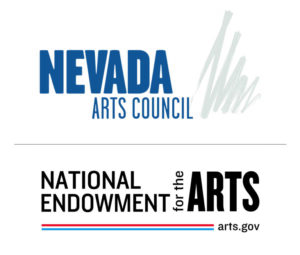PART 6
THE FACE TO FACE
LIKE A JOB INTERVIEW
I’ve always considered the pitch session as a job interview. That’s exactly what it is. The difference is that it’s a two way street. Not only will you be working for the agent and/or publisher, they’ll be working for you. When you get right down to it, you’re also interviewing them. The biggie right now though, is that the person you’re about to sit down with is holding all the cards. They have the power, the knowledge, and the abilities to take your hopes and dreams and turn them into a reality. Okay, maybe I’m laying it on a bit thick, but isn’t that why you’re there?
To make this less dramatic, you have a product and you’re looking for a manufacturer to produce, distribute and sell that product. That bland enough? You’re the inventor of said product. It’s your job to try to convince a corporation to take your product, refine it and produce it for mass consumption.
I think all of you have seen the movie somewhere where a guy in a business suit nervously tugs at his tie, briefcase in one hand, as he sits outside a boardroom to pitch his idea to a bunch of stuffed shirts. Is this all ringing a bell? Now that I’ve thoroughly depressed you, let’s lighten things up a bit and get to the reality of pitching to real people at a writer’s conference.
If you’re lucky enough to attend a good conference, you might have a scenario similar to what we have at the Las Vegas Writer’s Conference. I’m using this conference as an example not only to once again plug it (it takes place 24-26 April), but also because I have intimate knowledge of how this conference works.
MILLING ABOUT
You’ll sign in, and for the price of admission, get to pick at least one agent appointment slot, maybe more, depending on the schedule and the number of people adding in names. From personal experience, I’ve never had a problem seeing any agent I’ve wanted to see. These appointments might be the first, second, or third day, first thing in the morning through the end of the day. Because of that, there’s a good chance that during any sessions you pick, during breaks, and during meals you might find yourself talking face-to-face with the very agent you’re going to be pitching your book to. These are good times to get to know them, feel them out, find out what their likes and dislikes are. Get to know them as a person. You’re more than likely going to find them great people. Once in a while, you’ll find a total jerk. That’s happened to me a few times. I pitched to them anyway. Most of the jerks actually had me send them something and I got the expected results. One took two years to respond. I’d totally forgot about him, then out of the blue, I got a letter. “Not for me.”
Then again, the agent you’re pitching to might be teaching one of the sessions you signed up for. That’s another good way to get to know them and what they stand for, what they like and dislike, and how you might approach them. Meals are a good place to talk shop and hear the latest gossip in the publishing world. You can learn the trends and even find out what’s going on with your genre. That could help you slant your pitch when you sit down with them.
THE SIT DOWN
When it’s finally time to sit down, even though you may have met face-to-face before, sit down, shake their hand and introduce yourself. Then, when they ask you to tell them about your book, start out with your slug line. Those are the one or two sentences that should be the first one or two sentences that introduce your story. From there, if you wrote them well, the agent should ask you to tell them more. That’s when you give them a brief, and I mean brief, synopsis of the story including how the story ends.
Do not, and I mean do not ramble on and get off on tangents! Watch the agents’ body language. If their eyes start to wander or glaze over, you’ve lost them. You have to give them a one-two punch. You have to make them want more. When you sit down, your pitch letter, with the short synopsis on the back, should be slipped over to them first thing. They may glance at it, they may not. They may actually read it as they listen to your pitch. However, the chances are, they won’t actually take it. They’ll have you mail it to them. If that’s the case, make sure you revise the letter at the first paragraph to include that it was really nice to meet and talk with them at the Las Vegas Writer’s Conference bla bla bla (or whichever conference you attend). That paragraph is key, so that it puts a time and place on your meeting. Also at the bottom of the letter, make sure to include “I’ve attached … sample chapters and a … page synopsis per your request.”
One more thing, never ever pitch your book in casual conversation. Don’t be pushy. That’s a great way to turn them off. However, if you’re talking at lunch, dinner or wherever, the subject of your writing comes up and the agent says, “Well, tell me about your book,” they’re inviting you in. Otherwise, leave the pitching for your appointment.


Leave a Reply
You must be logged in to post a comment.